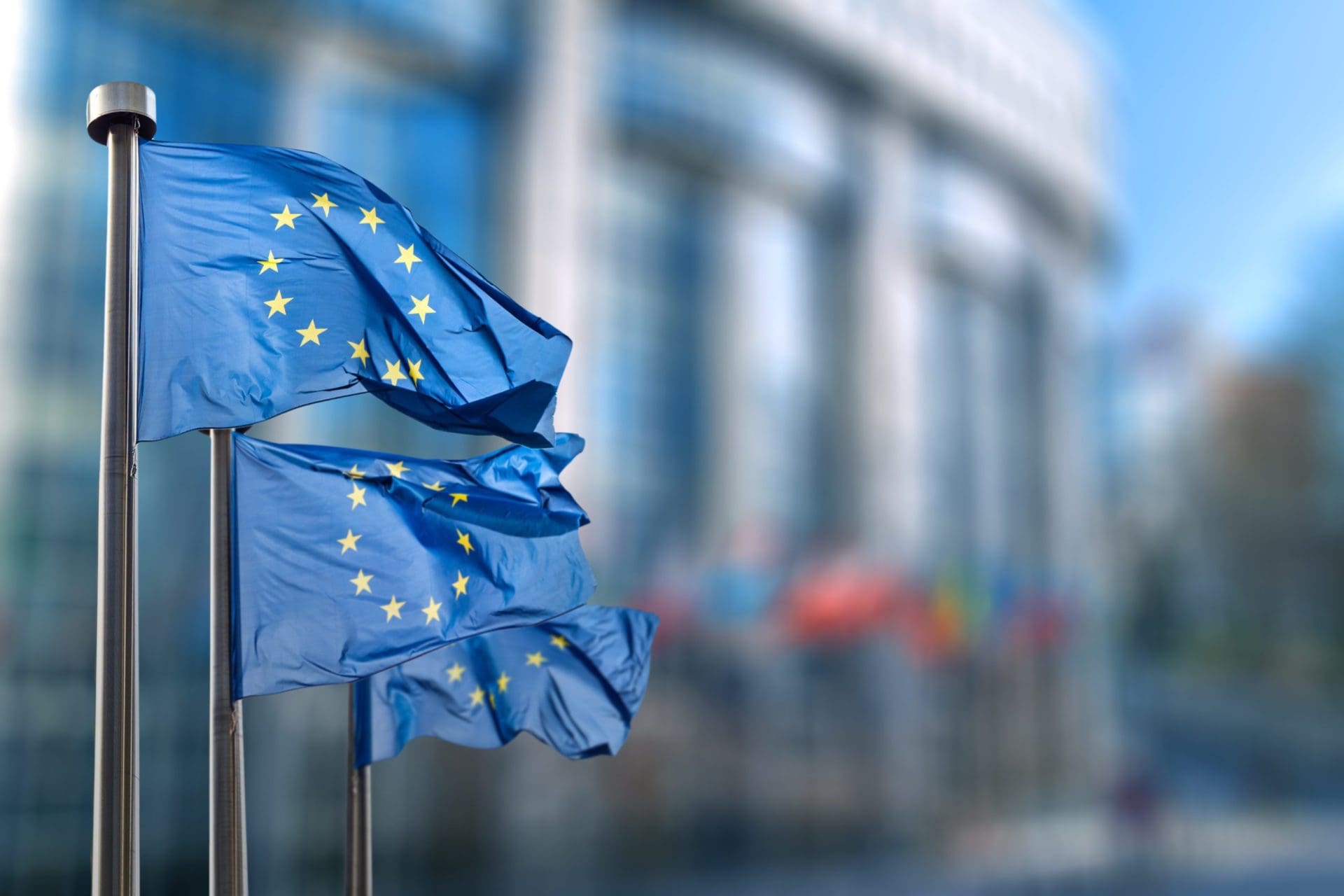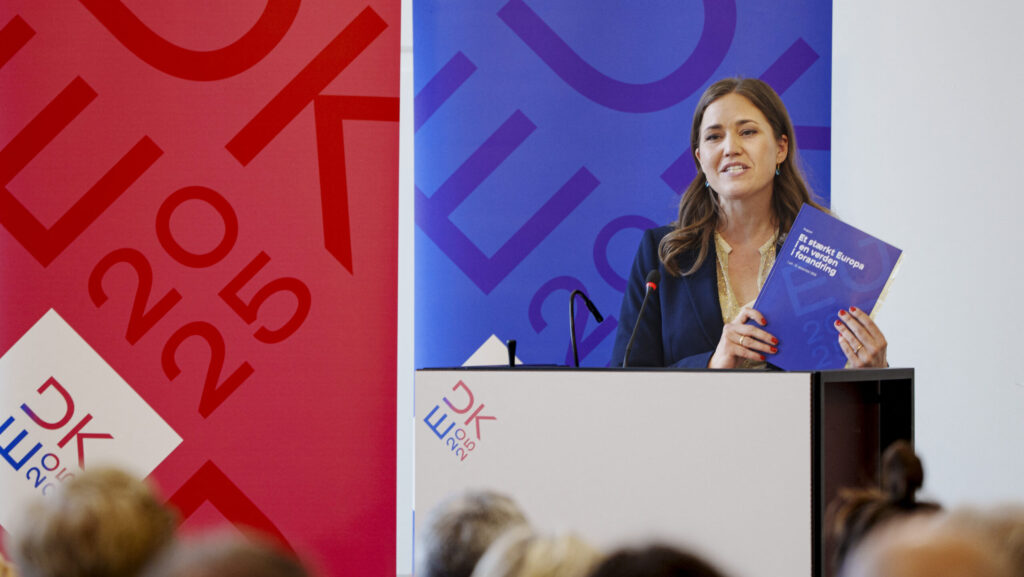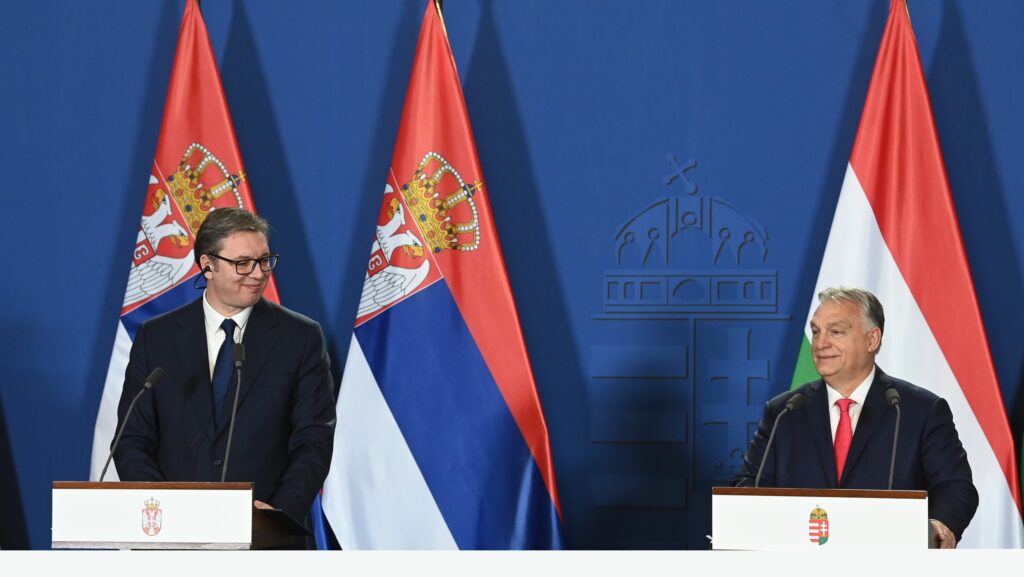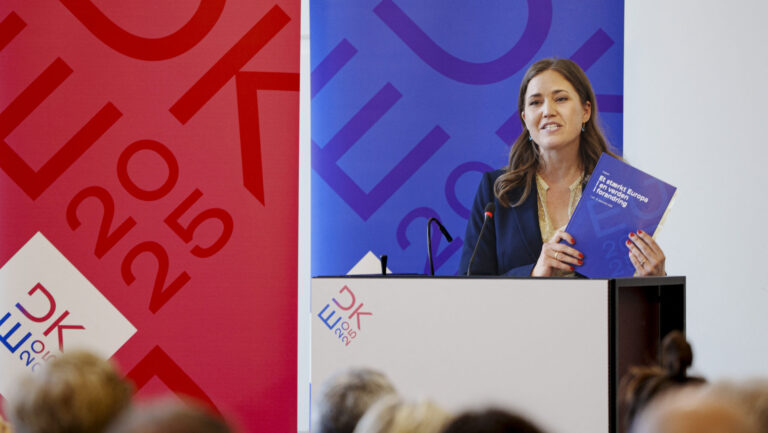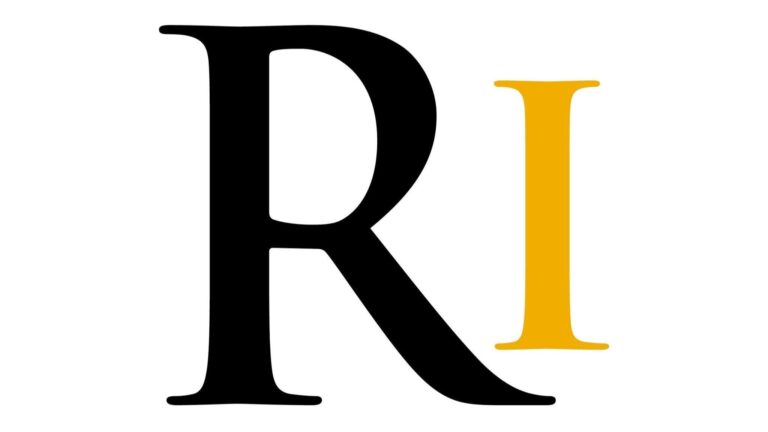The European Union has experienced a long chain of crises since 2005–2006: first a constitutional one, then a financial and monetary one, and last but not least a migratory one. Some voices even claim that nowadays the very values of democracy and national sovereignty are at stake in the Union, which has led us to the threshold of a much-needed political transformation. There is a wide range of visions about the future of Europe, in which Central European countries are also seeking to make their voices heard. It has become clear now that the Visegrád Group, along with Slovenia, can boast of a success story in terms of economic growth, labour, or migration-related issues. The countries in the region not only share the tragic historical experience of the loss of sovereignty, but also a cultural heritage, which is the cornerstone of successful cooperation. The combination of these factors provides an unprecedented opportunity to represent our common interests at the European level. We need to reform the EU, and instead of a Brussels-centric empire, we claim a rebirth, a sort of ‘European Renaissance’ (Márton Békés) to be able to compete with China and the United States.
Mutual Respect among Central European Countries
In light of the ongoing debate about the future of Europe, the Visegrád Group, under its Hungarian presidency of 2021–2022 organized a round table discussion jointly with the private university of Nova Univerza in Ljubljana. In his opening remarks, Ambassador Dávid Andor emphasized the importance of such panel discussions (including the Bled Strategic Forum in September 2021), as these events greatly contribute to the success of the Conference on the Future of Europe. The keynote speech was delivered by Alenka Puhar, Slovenian journalist and historian, who stressed that Slovenia, along with the other Central European countries, has always been part of Europe, but due to the communist intervention, the term ‘Central Europe’ ceased to exist. Eventually, during the 1980s the population of the oppressed nations expressed their ever-growing dissatisfaction with the communist regimes, and even the idea of Central Europe was revived.
The cooperation of V4 countries and Slovenia has grown from an interest-based into a value-based Central European cooperation
In light of Puhar’s words, we can affirm that after thirty years, the cooperation of V4 countries and Slovenia has grown from an interest-based into a value-based Central European cooperation. Our region has achieved successful advocacy in the EU, which can be detected in the ‘migrant quota battles’, or in the debates about the economic recovery fund supplied by the EU budget following the coronavirus pandemic. It should also be noted that despite deepened cooperation, each state can exercise its sovereign rights, as unanimity is not required in every case. The panel discussion provided proof in this matter because the participants expressed their different opinions regarding the past, present, and future of Europe, which is completely acceptable in a democratic dispute. We should appreciate this value, as in the EU it is becoming more and more frequent that countries disagreeing in certain matters face the threat of retaliation for representing their own interests.
Central Europeans Share a Common Cultural Heritage
Dr Roman Joch, executive director of the Civic Institute in Prague, highlighted that after the fall of communism, there was one main goal for Czechoslovakia, to rejoin Europe, since the country has always been part of Western civilization, which has its roots in Christianity, but contains Roman, Jewish, and Greek elements as well. Due to the totalitarian interruptions of the twentieth century, first under the Nazis then under the communists, Central European countries were denied their attachment to Europe. As a result of the Cold War dichotomy, we were part of the Eastern political bloc, but we were never part of the ‘East’. After being the hostages of the Soviet Union for fifty years, and neglected by the West, Central Europe returned to its civilizational roots via the EU and NATO accessions.
Juraj Marušiak, a senior research fellow at the Institute of Political Studies of the Slovak Academy of Sciences, expressed the view that the communists did not kidnap our region, as—in a certain sense—totalitarian tendencies had domestic roots, which he attributed to the delayed nation-building and the delayed establishment of nation states in our region. He emphasized, however, that our differences have been put aside, and that by concentrating on our common interests, the collaboration of Central European countries has become a focal point of innovative ideas.
Igor Senčar, chief foreign policy adviser to the Slovenian prime minister, argued that the paradigm of returning to Europe was an extremely powerful motivating factor in the V3 and then V4 countries. After 1989, the member states of the European Community sought to deepen their integration and not to enlarge it, but the Visegrád countries constantly reminded them that the latter should be the priority.
Dr Balázs Orbán, deputy minister of the Hungarian Prime Minister’s Office highlighted that those who claim that Central Europe is not a historical phenomenon are wrong, as the Visegrád cooperation dates back to 1335 when the kings of Hungary, Bohemia, and Poland already recognized their countries’ common interests against the economic hegemony of Vienna. He also expressed his disagreement with Marušiak regarding the communist dictatorship, claiming that the communists never won a single election in Central Europe, while Poles, Czechs, and Hungarians fought for their freedom against the oppressors. Therefore, the only reason for the survival of communism was due to the Soviet military occupation.
Professor Rafał Wiśniewski, director of the National Center for Culture in Poland emphasized that nations in Central Europe are bound together by their common cultural heritage and tragic historical events, such as foreign occupations, which eventually created solidarity between them. Nowadays, the main problem in the Union seems to be that our heritage is neglected, and solidarity manifests itself only in empty words. However, our region learned valuable lessons from these tragic historical events, which we could share with all of Europe if they would only listen to us.
Cultural Cold War in Europe
According to Joch, there is a kind of clash of civilizations behind the clash of worldviews in Europe. Today the most controversial issues are the redefinition of marriage, legal and illegal immigration, and the military arming of Europe. Basically, a sharp cultural division can be perceived in this matter between Western and Eastern Europe. In response to this, Marušiak was of the view that the real cultural conflict is not between Western and Eastern Europe, but between liberals and conservatives, independently of geographical borders. He added that this is not a new phenomenon, as in the past the same disagreements occurred between liberals and conservatives in the Austro-Hungarian Empire as well.
Senčar reminded the audience of the words of Robert Schuman, one of the founding fathers of the EU, according to whom ‘we need each other, regardless of position or power’. He said that unfortunately, nowadays, Europe lacks the necessary political or intellectual empathy when defining the ways and means of the cooperation. This attitude is also manifested in the EU institutions, since they act as if the EU Constitution had been adopted, despite the fact that it was rejected in two different referendums in two member states. He also drew attention to the misinterpretation of the phrase ‘ever-closer union’, which never meant the establishment of a unitary superstructure that would swallow nations and national identities.
Despite the wealth and prosperity of Western Europe, we have witnessed quite the contrary in these matters, pointing towards the decline of the West
Orbán argued that each Central European country is a success story in terms of economic growth, unemployment rate, social stability, border control, or the improvement of military capabilities. We can all be proud of our own achievements, and, to cap it all, by cooperating with one another we have established a strong bloc on the European level, where we can defend our common interests. Despite the wealth and prosperity of Western Europe, we have witnessed quite the contrary in these matters, pointing towards the decline of the West, and consequently, the West has ceased to be a role model for us. He agreed with Joch that the real conflict was caused by the West, which has led to a cultural cold war.
In his understanding, there are two competing visions regarding the future of Europe. There are those who seek to build an empire by erasing traditional values and nation states, and build their argumentation on the phrase that ‘global challenges require global solutions’. The opposing forces are the sovereigntists, who claim that our problems are rooted in our turning away from traditional values, and from our cultural and civilizational heritage. According to them, we have to maintain our civilization, which for centuries has been based on such cultural pillars as Christianity and the concept of the nation state, and we can only give appropriate answers to the challenges of the twenty-first century by respecting these values.
Wiśniewski drew the conclusion that our heritage can be maintained by building bridges on the micro level, and families are the irreplaceable flame-bearers of this cultural heritage. Families unite people, bind communities together, and eventually join people together on the macro level that is Europe.
The Importance of National Competencies
Joch emphasized that once we give competencies to the European institutions, we cannot take them back unless there is a consensus-based decision. That is the main reason why we should be cautious about what competencies we delegate to the EU. Although there should be common standards (for instance, in terms of the free market, hygiene, security, or the safety of products), some powers remain national and they should be respected. For his part, Marušiak claimed that the EU has to deal with several problems simultaneously, and that its incompetence is rooted in the unfinished constitutional process. Once this process is finished, we can also solve most of our problems.
Orbán drew attention to the fact that while the founding fathers agreed that they were not entitled to making decisions on behalf of the European people, nowadays we can observe that Brussels, as a political entity, acts in the opposite way. In order to enforce the ‘ever-closer union’, they do not engage in debates anymore, they just want to impose their liberal– progressive agenda on member states. In some areas, deeper cooperation is needed, while in others, for instance in migration-related issues, the competencies should be given back to the nation states. Orbán also drew attention to the problematic fact that EU law is not equivalent to a constitution, therefore EU institutions should avoid its misuse. EU law is a legal system based on international treaties signed by sovereign nations, so it cannot be used against member states for political reasons. A good example of that is when the European Parliament declared that the Polish Constitutional Court was illegitimate; these decisions are undermining the legitimacy of EU law.
Senčar expressed his scepticism regarding competencies given to the supranational institutions, as a Kompetenzkatalog would be impossible to establish. In his view, solidarity between member states should be prioritized along the principle of subsidiarity. Wiśniewski added that respecting local perspectives and strategies is of great importance, since it allows us to find a way to cooperate and build a better union by jointly tackling the challenges of migration.
Enlargement of the EU and Enhancement of Military Capabilities
Joch stressed the importance of the expansion of our defence capabilities, as Europe is wealthy from an economic perspective but weak from a military one, and that this could easily encourage other powers to take away our wealth. Regarding military issues, Senčar also noted that the EU cannot rely on the United States in military terms, and that therefore the defence policy of the Union should be enhanced. By investing in national defence capabilities, the cooperation of member states can be enhanced, which eventually would also deepen the Union’s strategic autonomy.
Orbán emphasized the importance of military capabilities and called for the acceleration of the EU’s enlargement process in the Western Balkans. Serbia and Albania have a substantial geopolitical importance, and therefore their accession and stabilization should be a priority for all of Europe.
Conclusions
Central Europe seeks to maintain the diverse national traditions and cultural heritage of our continent, and believes that by doing so, it also preserves the Judeo-Christian civilization
Although the participants at the conference disagreed on certain issues, we can conclude that they all evaluated the cooperation between the Visegrád countries and Slovenia as rather beneficial. Since Western European countries did not suffer from communist occupation, they do not understand the unique Central European mindset, driven by the fear of losing sovereignty. This unique historical experience is a cornerstone in our sense of belonging, which not only connects our cultural heritages, but also urges us to defend our common interests against centralization efforts. Central Europe seeks to maintain the diverse national traditions and cultural heritage of our continent, and believes that by doing so, it also preserves the Judeo-Christian civilization. We can build a better Europe only if cooperation among nation states is based on common interests and not on imposed integration attempts from the Brussels elite. The same applies to handing over competences to the EU’s institutions, since some of them (for instance migration) could be handled in a more efficient way by the nation states. At the same time, cooperation on defence policy should be deepened, and a European army should be established, as Europe is vulnerable and can no longer rely on the United States. As China challenges American hegemony, we are living in a ‘world without a world order’ (Mária Schmidt), and the EU has to be capable of defending itself against external threats. Last but not least, the enlargement of the EU to include the Western Balkan states would serve the geographical interests of Europe as a whole, and their accession should be accelerated. The stabilization of this region would not only expand the EU’s influence but it would also strengthen our security positions against possible waves of migration in the near future.
Disclaimer: The narrative framework expressed in this publication is that of the author and does not necessarily reflect the opinions and beliefs of the participants of the round table discussion.

